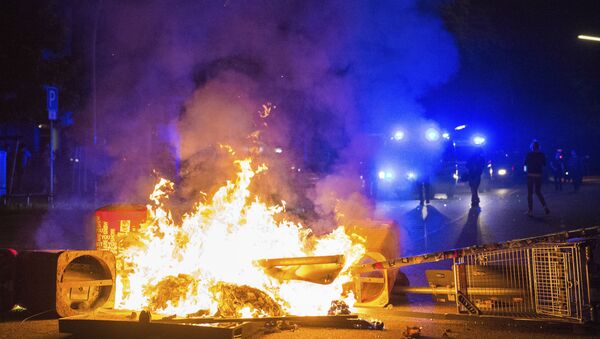In February, Metropolitan Police Commissioner Bernard Hogan-Howe warned an official Trump visit would undoubtedly cost a small fortune, as it would necessitate a huge increase in the number of police on the streets. His comments followed a protest in which several thousand took to the streets of the capital voicing their disapproval of Trump's controversial travel ban, which saw the temporary denial of US entry for refugees and citizens of seven Muslim-majority countries. Similar rallies were held in Scotland.
Moreover, the issue of protest violence looms large in the wake of the G20 protests in Hamburg, which some commentators dubbed the "G20 from Hell." As world leaders discussed issues of contemporary import, outside protesters clashed violently with police, with blazing infernos and savage looting positively routine.
German Social Democrat (SPD) candidate Martin Schulz went so far as to brand the violence as "almost terrorist" — and while Chancellor Angela Merkel was quick to state her support for the right to protest, she expressed disquiet at the initially peaceful demonstrations' spiraling descent into incendiary violence.
Die Bilder aus Hamburg sind erschütternd. Randale hat mit Politik nichts zu tun. Die Gewalttäter müssen zur Verantwortung gezogen werden.
— Martin Schulz (@MartinSchulz) July 7, 2017
Tweet: "The pictures from Hamburg are staggering. Rioting has nothing to do with politics. The perpetrators must be held accountable."
Wir haben den PolizistInnen zu danken. Sie haben unter schwierigsten Umständen Leib & Leben riskiert, um unseren Rechtsstaat zu verteidigen.
— Martin Schulz (@MartinSchulz) July 8, 2017
Tweet: "We have to thank the police officers. They have risked life and limb to defend our constitution in the most difficult circumstances."
At least 476 police officers were wounded in clashes with the anti-globalization demonstrators, and police claimed their 20,000 law enforcement officers took 225 people into custody and arrested 186 more.
It's unclear what measures May will undertake to ensure Trump's visit isn't a repeat of the G20, although given the public contention that is likely to attend Trump's visit, it's plausible the streets will be awash with law enforcement officers.
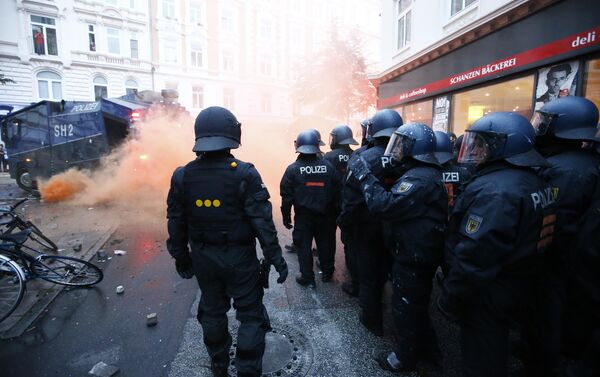
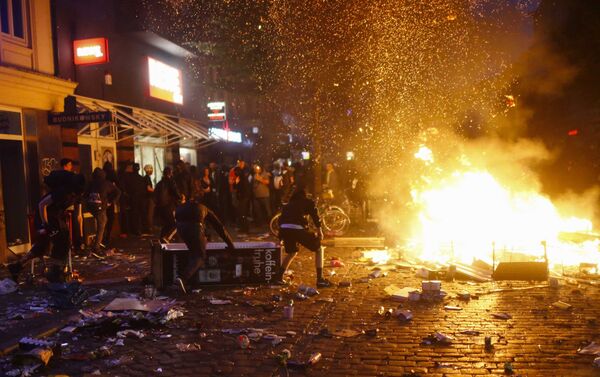
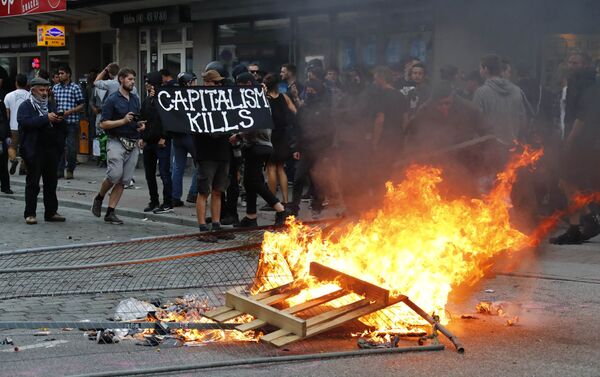
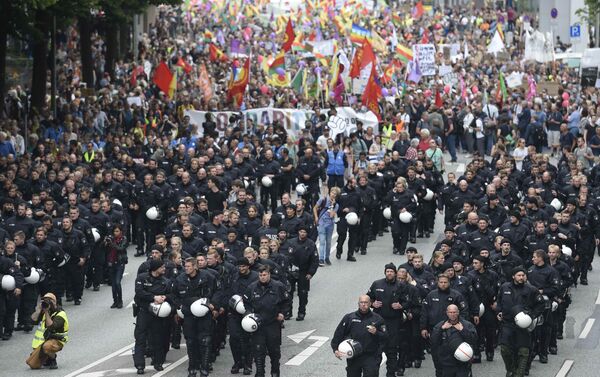
The alternative — a light-touch approach to security, which could lead to violence recalling the vicious student protests in 2010, would be unconscionable for both UK and US leaders.
Debate over an official state visit by the US President has raged throughout 2017.
In January, Prime Minister May revealed the Queen had invited Trump to Britain during her trip to Washington that same month — the visit was penciled in for summer 2017, but Trump subsequently got cold feet.
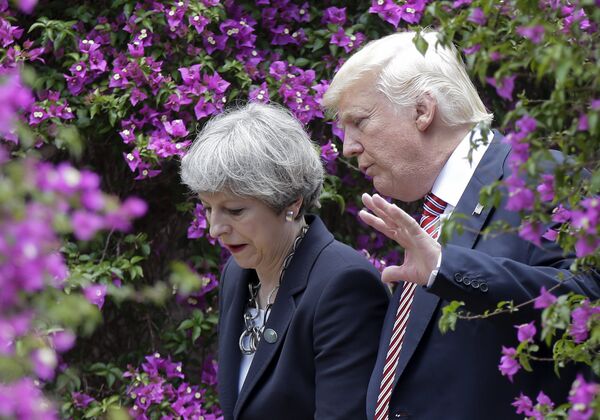
The June Queen's Speech was bereft of a mention a Trump visit, although Downing Street was quick to deny the voyage had been shelved.
In July, as Trump geared up for his visit to the G20, it was reported the controversial president may make a snap stopover in the UK prior to the summit — perhaps even in relative secret, to ensure the streets weren't awash with gnashing activists.
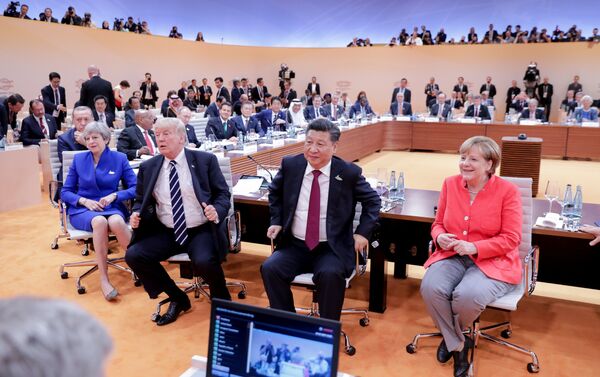
There are suggestions such a whistle-stop appointment may still take place before the official state visit.
On top of enraged Londoners and concerned Police Commissioners, Trump's visit has consistently been opposed by Sadiq Khan — the capital's Muslim Mayor has been embroiled in a long-running feud with Trump ever since the latter's election, and responded angrily to the official confirmation, calling for its cancellation.
In the least, he'd prefer it downgraded to a run-of-the-mill official trip, in the manner of other lesser international statesmen.
Nonetheless, while impassioned protests are sure to accompany Trump's arrival, polling suggests not every Briton is fingering placards in anticipation — a YouGov survey has found 49 percent of the UK public believe Trump's state visit should go ahead, compared to 36 percent who would like it canceled.
Almost half of Brits think the Trump state visit should go ahead https://t.co/1OuoziHnOF
— YouGov (@YouGov) February 1, 2017

